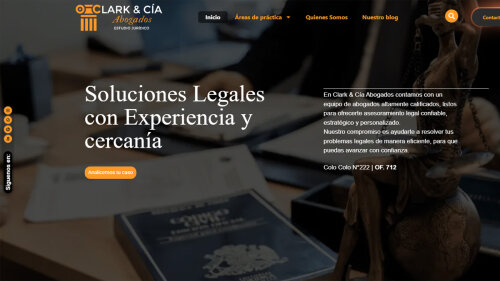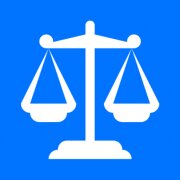Best Antitrust Litigation Lawyers in Concepción
Share your needs with us, get contacted by law firms.
Free. Takes 2 min.
List of the best lawyers in Concepción, Chile
About Antitrust Litigation Law in Concepción, Chile
Antitrust litigation in Concepción, Chile, focuses on ensuring fair market competition and preventing practices that could harm consumers or other businesses. This field of law addresses issues like price fixing, market sharing, monopolistic practices, and abuse of dominant market positions. Cases are usually investigated and prosecuted by regulatory bodies such as the Fiscalía Nacional Económica (National Economic Prosecutor's Office) and judged by the Tribunal de Defensa de la Libre Competencia (Competition Defense Tribunal). As a regional hub of commerce and industry, Concepción witnesses various antitrust matters involving local businesses, multinational companies operating in the area, and public entities.
Why You May Need a Lawyer
Legal assistance in antitrust litigation is crucial in several scenarios. You might need a lawyer if your business is accused of anti-competitive practices, such as colluding with competitors, setting prices, or dividing markets. Legal support is also vital if you suspect other businesses are engaging in conduct that disadvantages your company, such as abusing their market position or engaging in unfair mergers. Navigating investigations, responding to inquiries from authorities, protecting trade secrets during proceedings, and seeking compensation for harm caused by anti-competitive actions all require professional legal guidance. The rules and procedures in antitrust litigation can be complex, making a knowledgeable lawyer essential for protecting your interests.
Local Laws Overview
The primary legislation governing antitrust matters in Chile, including Concepción, is the Decreto Ley 211, which aims to promote free competition and prevent conduct that restricts or distorts the market. Key aspects of local antitrust law include the prohibition of cartels, bans on the abuse of dominant positions, and regulations on mergers and acquisitions that may reduce competition. The Competition Defense Tribunal (TDLC) is the specialized court handling these disputes, and the Fiscalía Nacional Económica (FNE) is the primary investigative body. The law applies to both private and public entities operating in Chile, and penalties for breaches can include fines, annulment of agreements, damages, and disqualification from certain market activities.
Frequently Asked Questions
What is antitrust litigation?
Antitrust litigation involves legal proceedings against businesses or individuals accused of violating competition laws, such as forming cartels, abusing market dominance, or participating in unfair mergers.
Who enforces antitrust laws in Concepción?
Antitrust laws in Concepción are enforced by the Fiscalía Nacional Económica (FNE) and cases are judged by the Tribunal de Defensa de la Libre Competencia (TDLC).
Can individuals or companies report suspected antitrust violations?
Yes, both individuals and companies can report suspected anti-competitive conduct to the FNE, which can launch an investigation if appropriate.
What are possible penalties for violating antitrust laws in Chile?
Penalties may include heavy fines, the annulment of illegal agreements, obligations to change business practices, damages to harmed parties, and even disqualification from holding management positions.
Is it illegal to have a monopoly in Chile?
Holding a dominant market position is not illegal by itself, but abusing that position to restrict competition or harm consumers is prohibited.
What should I do if my company is being investigated for antitrust violations?
You should consult with a lawyer experienced in antitrust matters to understand your rights, obligations, and how to respond to investigators effectively.
Can competitors collaborate under any circumstances?
Some collaborations are allowed if they do not harm competition and meet specific legal requirements but most forms of collusion such as price fixing or market sharing are strictly illegal.
How is evidence collected in antitrust cases?
Evidence can include documents, electronic communications, witness statements, and expert reports. The FNE has legal powers to conduct searches and request information.
Can foreign companies be prosecuted for antitrust violations in Chile?
If their practices affect the Chilean market, foreign companies can be investigated and prosecuted under Chilean antitrust laws.
How long do antitrust investigations or litigation usually take?
Timelines vary depending on the complexity of the case, the amount of evidence, and the legal issues involved. Some cases resolve within months, while others can take years.
Additional Resources
- Fiscalía Nacional Económica (FNE) - The main investigative body for competition law, offering public guidelines and annual reports. - Tribunal de Defensa de la Libre Competencia (TDLC) - The judicial body dedicated to ruling on antitrust litigation. - Colegio de Abogados de Concepción - Directory for qualified local lawyers. - Cámara de la Producción y del Comercio de Concepción - Business chamber supporting compliance with competition regulations. - Academic publications from local universities, such as the Universidad de Concepción’s Law Faculty, on free competition issues.
Next Steps
If you believe you need legal assistance in antitrust litigation, start by gathering all relevant documents such as business contracts, communications, and any notices from authorities. Contact a lawyer who specializes in competition law, ideally one familiar with legal matters in Concepción. Schedule a consultation to discuss your situation in detail, explore your legal options, and ensure timely responses to authorities if necessary. Monitoring updates from the FNE and TDLC can also provide guidance on ongoing legal standards. Acting promptly with professional legal support is the best way to protect your legal and business interests in antitrust matters.
Lawzana helps you find the best lawyers and law firms in Concepción through a curated and pre-screened list of qualified legal professionals. Our platform offers rankings and detailed profiles of attorneys and law firms, allowing you to compare based on practice areas, including Antitrust Litigation, experience, and client feedback.
Each profile includes a description of the firm's areas of practice, client reviews, team members and partners, year of establishment, spoken languages, office locations, contact information, social media presence, and any published articles or resources. Most firms on our platform speak English and are experienced in both local and international legal matters.
Get a quote from top-rated law firms in Concepción, Chile — quickly, securely, and without unnecessary hassle.
Disclaimer:
The information provided on this page is for general informational purposes only and does not constitute legal advice. While we strive to ensure the accuracy and relevance of the content, legal information may change over time, and interpretations of the law can vary. You should always consult with a qualified legal professional for advice specific to your situation.
We disclaim all liability for actions taken or not taken based on the content of this page. If you believe any information is incorrect or outdated, please contact us, and we will review and update it where appropriate.














